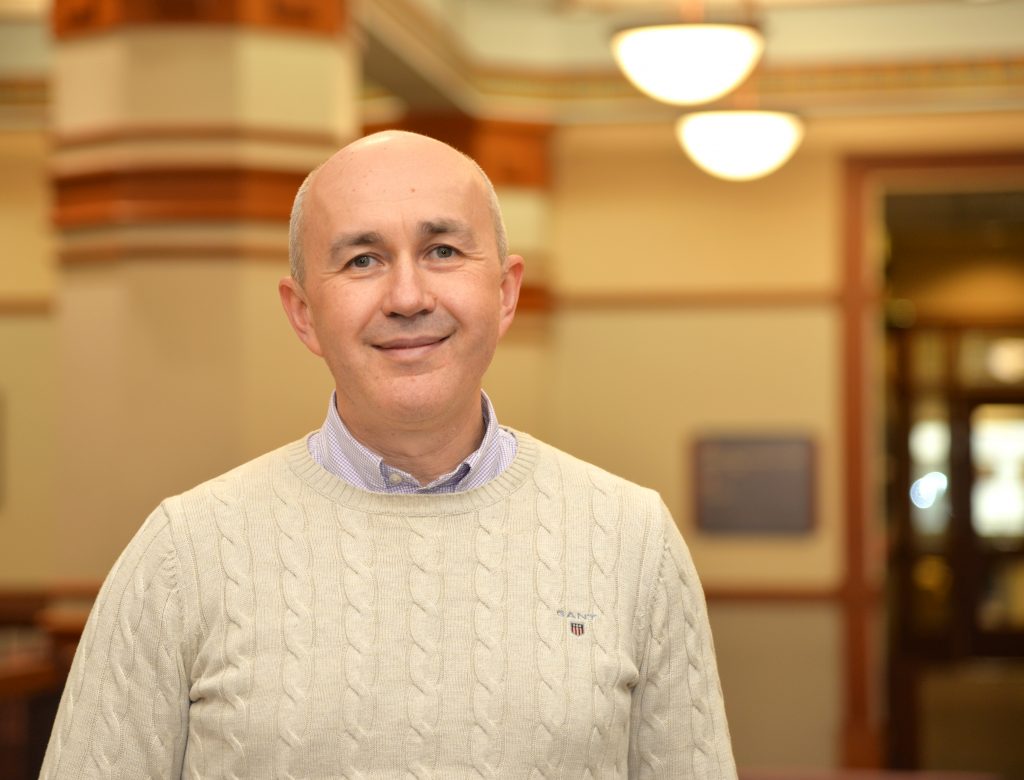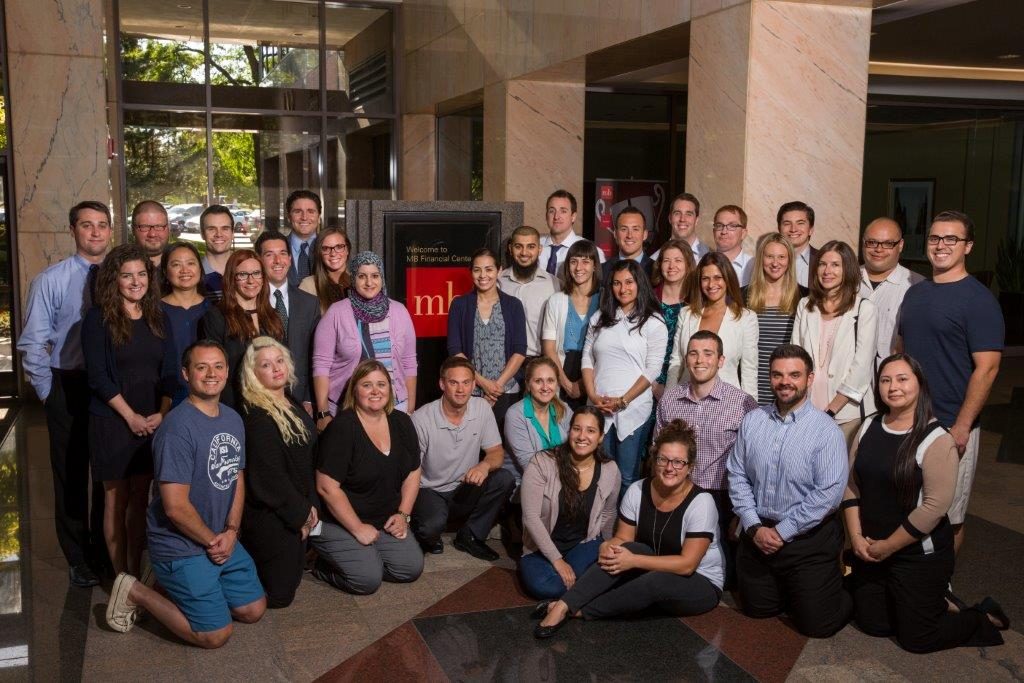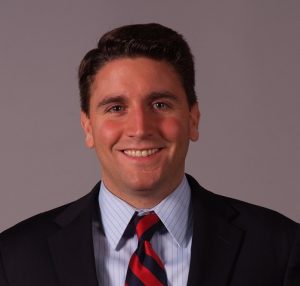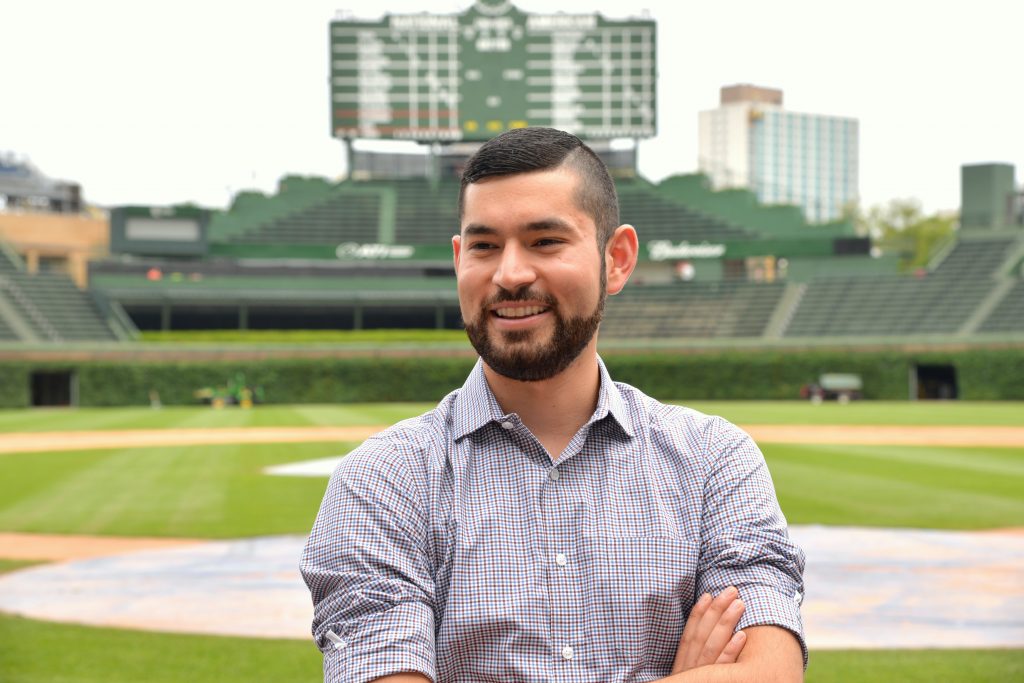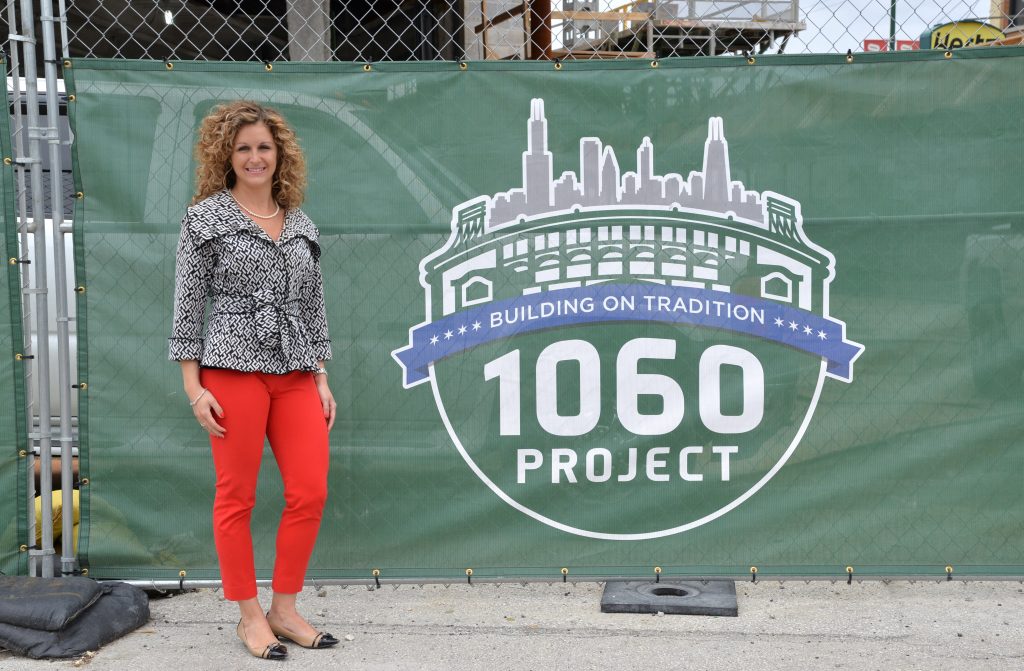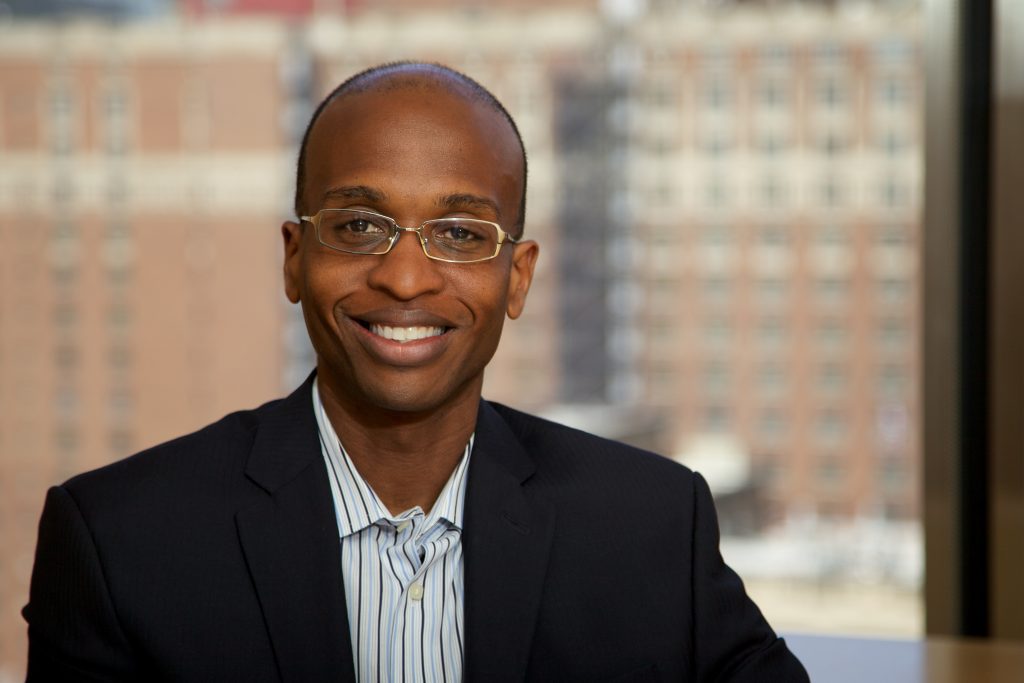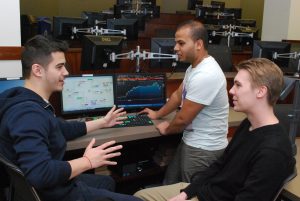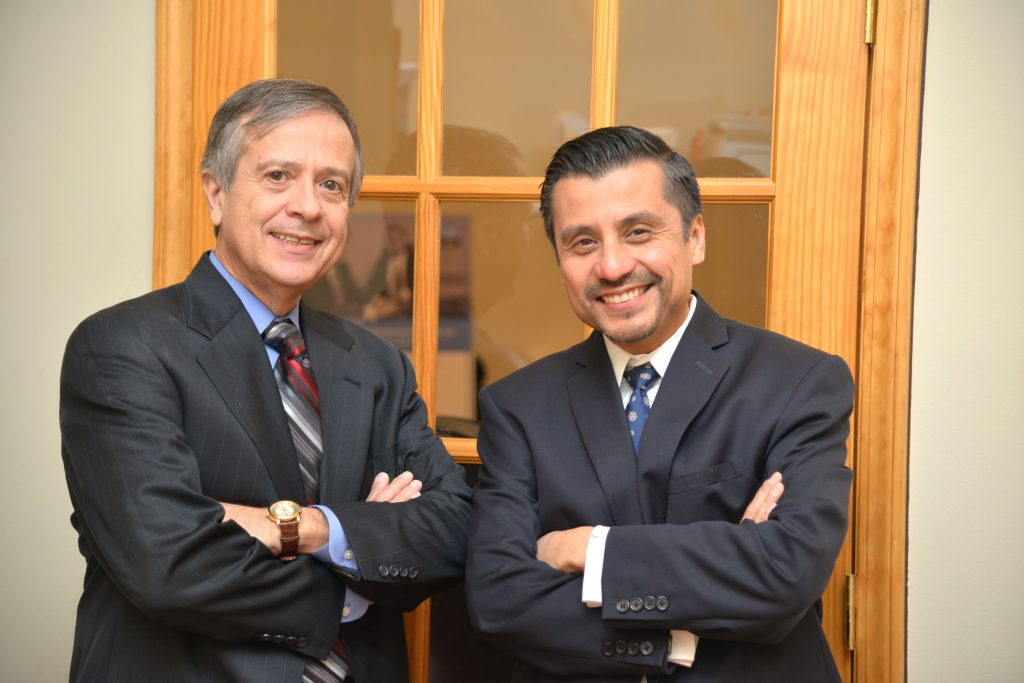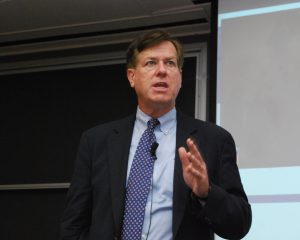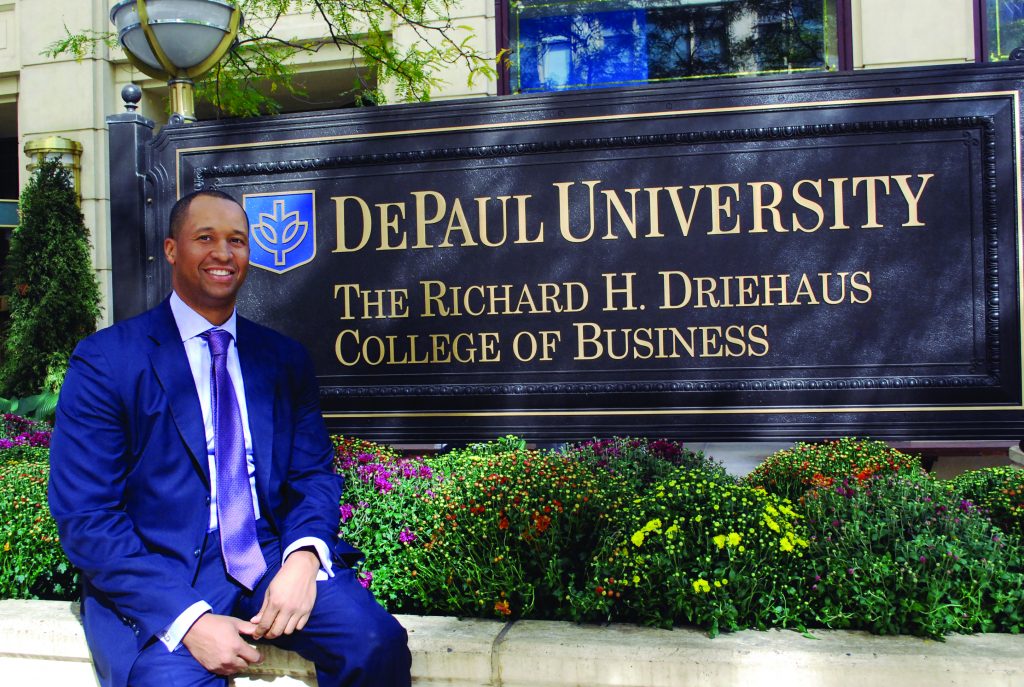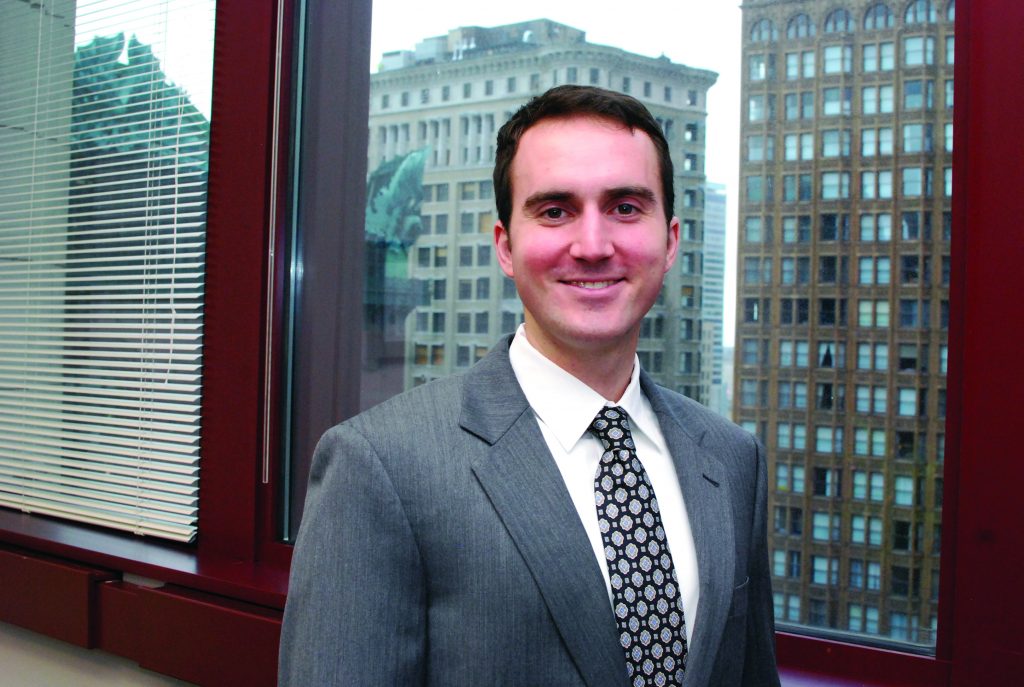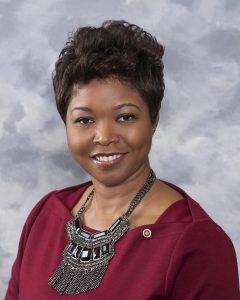
Over the summer, DePaul’s Driehaus College of Business invited high school students from across the Chicago area to participate in academic programs that introduced them to the higher education experience and potential future careers.
DePaul’s Department of Management & Entrepreneurship hosted 20 high school students for a summer program called “Be Your Own Boss.” Created in conjunction with the Chicago Housing Authority (CHA), BMO Harris and Macy’s, the six-week curriculum focused on career awareness, college readiness, team-building and leadership skills.
“This was a fantastic opportunity for students to focus on what they want to do in life,” says Susanne Mickey, who developed the curriculum for the program and is assistant to the Department of Management & Entrepreneurship chair. “The course helps students develop skill sets they didn’t even know existed, preparing them for not only college, but also for leadership in their communities.”

The “Be Your Own Boss” program is part of Mayor Rahm Emanuel’s One Summer Chicago initiative that provides youth with employment and enrichment programs. Over the course of four weeks, students learned about leadership, management, marketing, sales, accountancy, financial planning, hospitality, communications and entrepreneurship. They also visited with sports and business executives from the Bulls, Bears, Cubs, PepsiCo and Macy’s.
Assistant Professor Andy Clark, who is the faculty coordinator of the Sports Management curriculum at DePaul’s Driehaus College of Business, arranged for the teens to visit Chicago pro sports team and lectured about business management. Visiting Assistant Professor Ivanna Zilic, the other main faculty member for the six-week program, taught the students interviewing and presentation skills and how to perfect their elevator speech.
Opening New Paths for Chicago Teens
Abdullah Hutcherson from Chicago Virtual Charter School decided to participate in the “Be Your Own Boss” program because he was interested in entrepreneurship and business management. “A lot of kids in this program may not have access to these opportunities,” Hutcherson says. “The ‘Be Your Own Boss’ program opens new paths and creates a different reality from what you see on a day-to-day basis.” Hutcherson one day hopes to own a gym and feels that the management, marketing and accounting skills he learned from the program will help him in the future.
At the end of this six-week program, students received a professional wardrobe courtesy of Macy’s. They learned how to make a polished business presentation, which they delivered in front of an audience of family, friends and supporters from CHA, BMO Harris and DePaul.
“When you are young, you are unsure who you are and who you’ll become,” Mickey says. “To be able to have this experience and participate in everything that is offered, in the end it can be a life changer. It will give you the assurance that you will go further in life, you can do anything you want to do and you can truly become your own boss.”
Actuarial Camp Introduces Teen Math Scholars to Lucrative Career Path
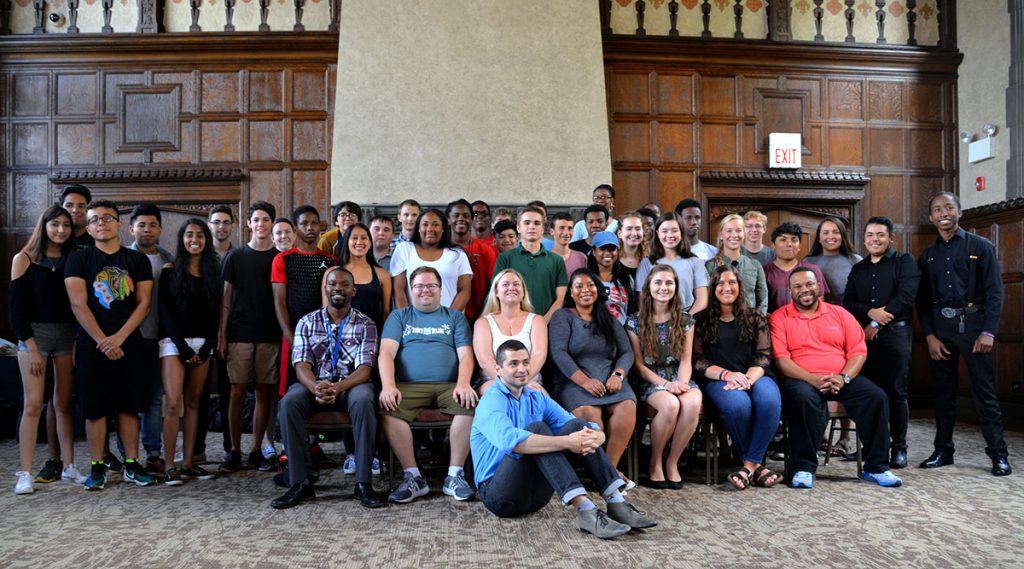
DePaul’s Arditti Center for Risk Management, which is part of DePaul’s Department of Finance, also hosted a summer enrichment program for teens this summer. The second annual Actuarial Summer Academy in August offered a one-week, on-campus program designed to get high school students engaged in the actuarial field through experiential learning, case challenges and visits by industry professionals.
“People who are good at math and stumble across actuarial sciences on their own are often frustrated that they didn’t find this career path earlier,” says Finance Professor Carl Luft (BUS ’75, MBA ’77), academic director of the Arditti Center for Risk Management. “We are introducing high school students to this profession much earlier so they have the tools to succeed in this lucrative career.”
DePaul is the only business school in Chicago with an actuarial science major. The Actuarial Summer Academy used this advantage to bring together industry representatives, talented high school students and DePaul faculty members. This year, 36 Chicago-area high school math students descended on DePaul’s Loop Campus to learn more about actuarial science as a career. The Actuarial Academy students were divided into seven teams each sponsored by a local corporate partner and assigned a real-world risk management project to solve by the end of the week.
Rayana Bush from Kenwood Academy in Hyde Park was looking for an enrichment course to take over the summer. Her pre-calculus teacher approached her about the actuarial academy. “I love math so much and I knew I wanted to find an interesting math profession, but there was never one I thought I fit in,” Bush says. “The actuary profession has opened my eyes to what I could be in the future.” Bush’s student team was sponsored by BlueCross BlueShield of Illinois, and she enjoyed meeting actuaries from the organization, learning new challenging concepts and tackling the group project.
The Actuarial Academy culminated with each student team presenting their project results to the other teams, faculty members and parents. “We are building the brand of DePaul and enhancing the actuarial profession with this academy,” says Clinical Professor of Finance Tom Edwalds, who led the camp with DePaul Assistant Professor of Mathematics Stefanos Orfanos. “We are looking to attract higher caliber of students to DePaul and introduce a lucrative career where each of these students can succeed.”
By Andrew Zamorski
